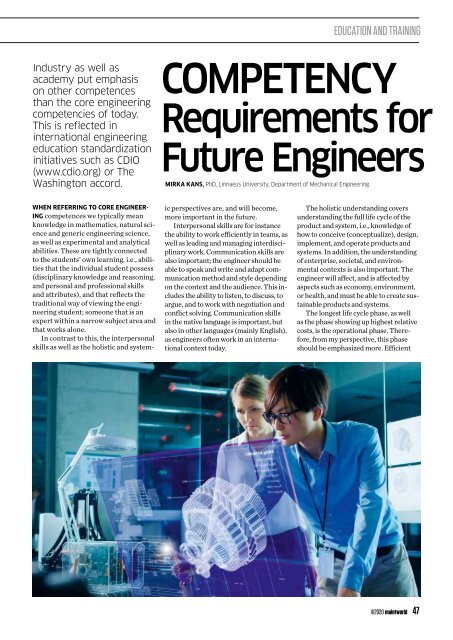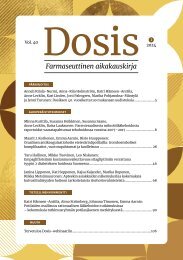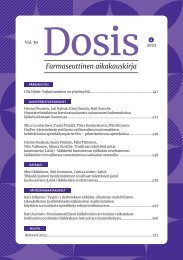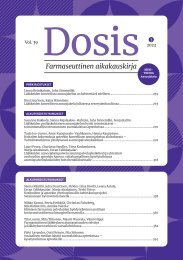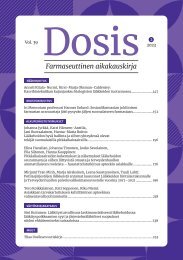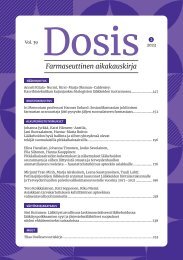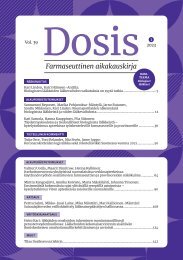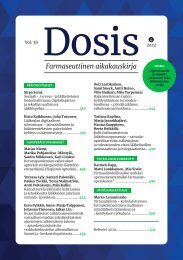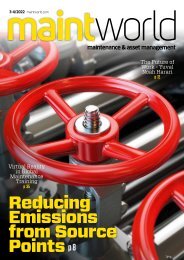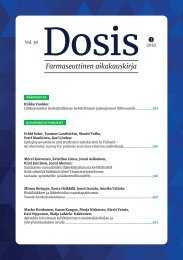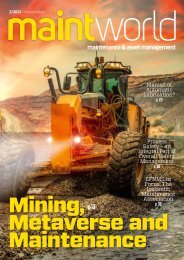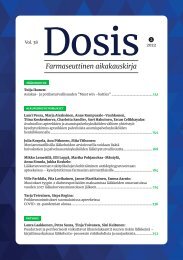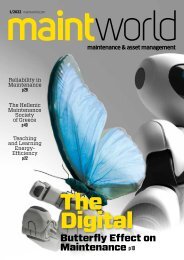Maintworld Magazine 4/2020
- maintenance & asset management
- maintenance & asset management
Create successful ePaper yourself
Turn your PDF publications into a flip-book with our unique Google optimized e-Paper software.
EDUCATION AND TRAINING<br />
Industry as well as<br />
academy put emphasis<br />
on other competences<br />
than the core engineering<br />
competencies of today.<br />
This is reflected in<br />
international engineering<br />
education standardization<br />
initiatives such as CDIO<br />
(www.cdio.org) or The<br />
Washington accord.<br />
COMPETENCY<br />
Requirements for<br />
Future Engineers<br />
MIRKA KANS, PhD, Linnaeus University, Department of Mechanical Engineering<br />
WHEN REFERRING TO CORE ENGINEER-<br />
ING competences we typically mean<br />
knowledge in mathematics, natural science<br />
and generic engineering science,<br />
as well as experimental and analytical<br />
abilities. These are tightly connected<br />
to the students’ own learning, i.e., abilities<br />
that the individual student possess<br />
(disciplinary knowledge and reasoning,<br />
and personal and professional skills<br />
and attributes), and that reflects the<br />
traditional way of viewing the engineering<br />
student; someone that is an<br />
expert within a narrow subject area and<br />
that works alone.<br />
In contrast to this, the interpersonal<br />
skills as well as the holistic and systemic<br />
perspectives are, and will become,<br />
more important in the future.<br />
Interpersonal skills are for instance<br />
the ability to work efficiently in teams, as<br />
well as leading and managing interdisciplinary<br />
work. Communication skills are<br />
also important; the engineer should be<br />
able to speak and write and adapt communication<br />
method and style depending<br />
on the context and the audience. This includes<br />
the ability to listen, to discuss, to<br />
argue, and to work with negotiation and<br />
conflict solving. Communication skills<br />
in the native language is important, but<br />
also in other languages (mainly English),<br />
as engineers often work in an international<br />
context today.<br />
The holistic understanding covers<br />
understanding the full life cycle of the<br />
product and system, i.e., knowledge of<br />
how to conceive (conceptualize), design,<br />
implement, and operate products and<br />
systems. In addition, the understanding<br />
of enterprise, societal, and environmental<br />
contexts is also important. The<br />
engineer will affect, and is affected by<br />
aspects such as economy, environment,<br />
or health, and must be able to create sustainable<br />
products and systems.<br />
The longest life cycle phase, as well<br />
as the phase showing up highest relative<br />
costs, is the operational phase. Therefore,<br />
from my perspective, this phase<br />
should be emphasized more. Efficient<br />
4/<strong>2020</strong> maintworld 47


